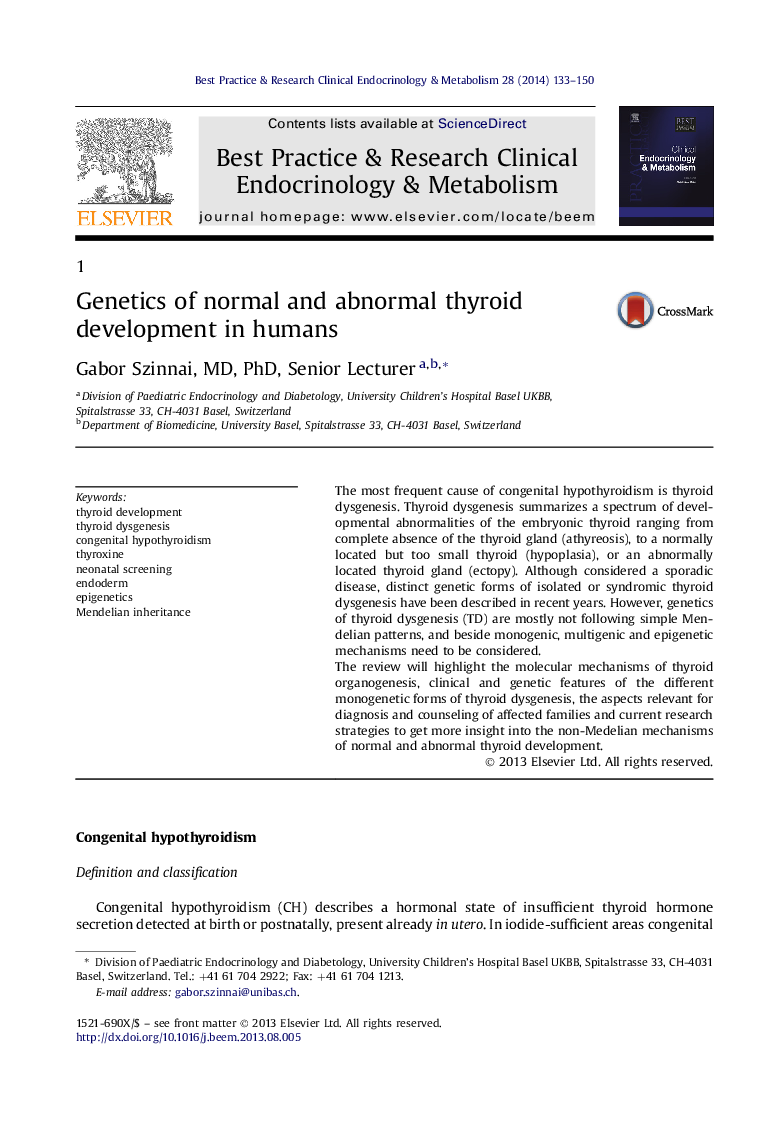| Article ID | Journal | Published Year | Pages | File Type |
|---|---|---|---|---|
| 2791636 | Best Practice & Research Clinical Endocrinology & Metabolism | 2014 | 18 Pages |
The most frequent cause of congenital hypothyroidism is thyroid dysgenesis. Thyroid dysgenesis summarizes a spectrum of developmental abnormalities of the embryonic thyroid ranging from complete absence of the thyroid gland (athyreosis), to a normally located but too small thyroid (hypoplasia), or an abnormally located thyroid gland (ectopy). Although considered a sporadic disease, distinct genetic forms of isolated or syndromic thyroid dysgenesis have been described in recent years. However, genetics of thyroid dysgenesis (TD) are mostly not following simple Mendelian patterns, and beside monogenic, multigenic and epigenetic mechanisms need to be considered.The review will highlight the molecular mechanisms of thyroid organogenesis, clinical and genetic features of the different monogenetic forms of thyroid dysgenesis, the aspects relevant for diagnosis and counseling of affected families and current research strategies to get more insight into the non-Medelian mechanisms of normal and abnormal thyroid development.
